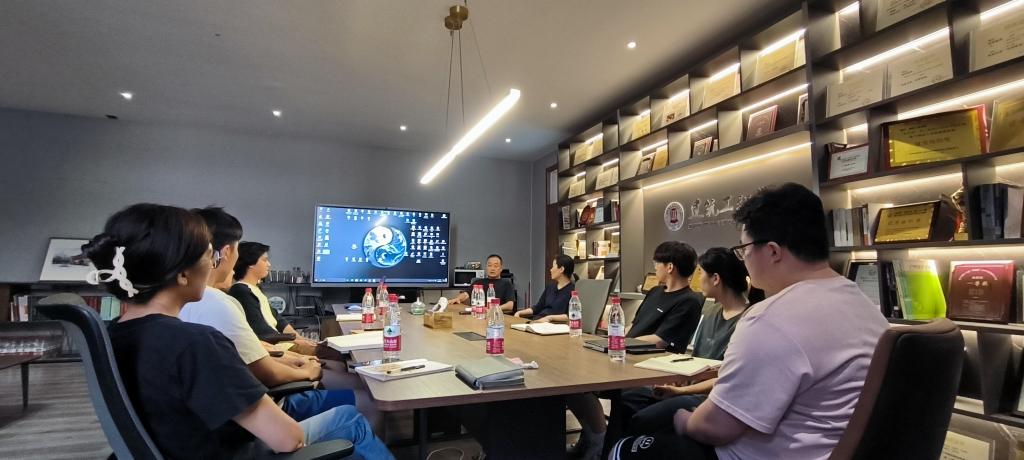
Prof. Lian Jing from Hebei University of Science and Technology delivered a lecture entitled “Research on the Mechanism and Key Technology of Microbial Metabolism Regulated by Electroactive Substances” at the invitation of the School of Civil Engineering and Architecture at the faculty’s lounge bar in the afternoon of July 5. The lecture focused on the cutting-edge progress of electroactive substances in the field of microbial metabolism regulation. Teachers and students from the School of Civil Engineering and Architecture participated in the lecture.
As an expert in this field, Prof. Lian, with her profound theoretical background and rich practical experience, introduced the strategies of electroactive substances in regulating denitrification, perchlorate, anaerobic ammonia oxidation granular sludge cultivation and stable operation of the reactor, as well as microbial fuel cell power production and pollutant simultaneous removal technology, and interpreted the mechanism of regulation from the perspectives of electrochemistry, biochemistry and microbial ecology. From the perspectives of electrochemistry, biochemistry and microbial ecology, she explained the regulation mechanism, and analyzed in depth how the electroactive substances affect the metabolic pathways of microorganisms and how to use modern biotechnology to realize the precise regulation of microbial metabolic processes. She especially emphasized the broad application prospects of electroactive substances in the fields of environmental protection, energy and medicine, which stimulated the audience’s interest in the future direction of scientific research.
Prof. Lian Jing used examples to show the remarkable results of electroactive substances regulation technology in practical applications. She encouraged the students present to explore the unknown and make their own contributions to promote scientific and technological progress and social development. Teachers and students on the spot enthusiastically asked questions, and Prof. Lian answered each question in detail.
The lecture not only provided teachers and students with the opportunity to communicate with the top scholar face-to-face, but also demonstrated the school’s commitment to promoting interdisciplinary research and academic innovation. In the future, the School of Civil Engineering and Architecture will invite more industry elites and academic champions to lecture in TU.